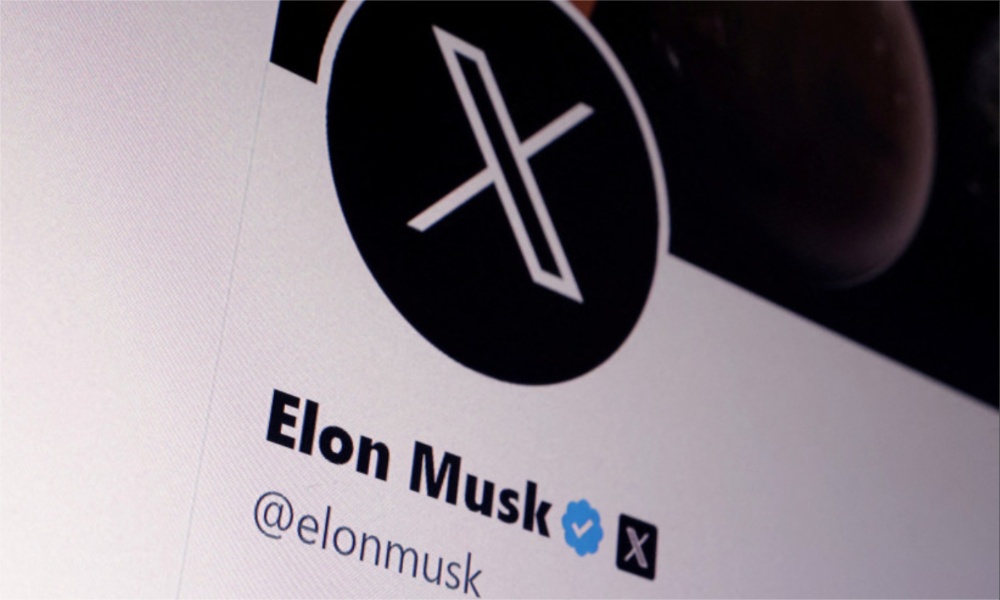Science & Technology
Smart charging may be key to saving power grid in world of EVs

As electric vehicle (EV) sales rise, the big question for power grid operators, charging companies and governments is how to run tens of millions of vehicles without crashing local networks or spending billions on grid upgrades.
The answer: smart charging.
Simply put, smart charging software allows EV owners to plug in during expensive peak hours, without the vehicle drawing power until cheap off-peak hours. This eases strain on the electric grid, makes better use of renewable energy and saves drivers money.
Without it, millions of EV owners plugging in after work – auditing firm EY estimates Europe will have 65 million EVs by 2030 and 130 million by 2035 – could overload local grids, causing blackouts.
“The shift to electric will be nigh on impossible without smart charging,” Chris Pateman-Jones, CEO of British EV charger company Connected Kerb, told Reuters while demonstrating a pilot project on public chargers in Hackney, a London borough.
Using Connected Kerb’s smartphone app you can set your charging speed, charge time and exact price down to a low, slow “Eco” rate of 19 pence (26 U.S. cents) per kilowatt.
“It’s so much cheaper and simpler,” said Ged O’Sullivan, a 65-year-old pub owner who cut his plug-in hybrid’s charging bill by 30% with Connected Kerb.
Smart charging for public chargers is a significant challenge because so few are available for people who cannot charge at home because they park on the street.
According to a report from EY and Eurelectric, Europe alone will need 9 million public chargers by 2035, up from 374,000 today.
The near future should also bring “bidirectional” or “vehicle-to-grid” charging, where millions of EV owners could sell their EV batteries’ juice back to grid operators during peak hours.
Even in Britain where smart charging at home is widely available, many EV owners are unaware it exists, according to Britain’s energy regulator, Ofgem. In the United States, only a tiny fraction of utilities offer it, according to utilities group the Smart Electric Power Alliance.
And few cars today beside Renault and Hyundai’s upcoming Ioniq model are capable of bidirectional charging – though more are coming.
“Most cars, at this point, do not support this bidirectional charging yet,” said Robin Berg, CEO of We Drive Solar, which has supplied hundreds of bidirectional chargers for a pilot project in the central Dutch city of Utrecht and worked with Renault SA (RENA.PA) and Hyundai Motor Co (005380.KS) on their vehicles. “Other carmakers will follow.”
Nearly 20% of new cars sold in the Netherlands and almost 12% in Britain in 2021 were fully electric.
State support has put Norway at the forefront of electrification, where EVs made up almost three-quarters of sales in the capital Oslo. Some local substations were built in the 1950s and without smart charging Oslo would need massive, costly grid upgrades.
“To handle this we need smart charging solutions because we don’t want to over-invest in the grid,” said Sture Portvik, who heads Oslo’s charging infrastructure efforts.
‘AWARENESS IS LOW’
Connected Kerb aims to have 190,000 UK on-street chargers by 2030, enabling it to predict consumer charging patterns for grid operators and offer lower rates when the available renewable energy is abundant, said Pateman-Jones.
“Today when there’s too much wind on the grid, wind farms are told to turn the wind turbines off,” he said. “With smart charging we can pull more of that power.”
Some UK energy providers already offer low off-peak rates for home smart charging, but few EV owners use them.
“The perception is smart charging at home is a done deal,” said Charlie Cook, CEO of Rightcharge, a UK firm that helps EV owners find low tariffs. “But the reality is awareness of these tariffs is surprisingly low.”
Rightcharge estimates smart charging could save UK drivers 10 billion pounds ($13.5 billion) by 2030.
British car dealer network Lookers (LOOK.L) guides EV buyers to Rightcharge’s website to check their options.
Lookers’ business development director, Andrew Hall, said “early adopter” EV buyers are “pretty savvy about smart charging.”
“But that is changing as EV sales rise,” he added.
Utilities group the Smart Electric Power Alliance estimates only 50 out of 3,000 U.S. utilities offer smart charging.
EV charging company ChargePoint’s (CHPT.N) U.S. chargers can all smart-charge, but it wants more utilities to offer it.
“We see a lot of positive response from customers when their utility is offering those rates,” said Anthony Harrison, ChargePoint’s North American head of utility partnerships.
Charging provider Blink Charging Co (BLNK.O) has one set rate until smart charging is widely available.
“We decided to keep it simple for our customers,” said Blink CEO Michael Farkas.
‘HORRENDOUSLY EXPENSIVE’
Bidirectional charging may be crucial.
“The whole idea behind bidirectional charging is to balance the grid,” said We Drive Solar’s Berg, who estimates a fully charged EV can power the average home in the Netherlands for a week.
Serge Colle, EY’s global energy resources leader, said smart and bidirectional charging are better than “horrendously expensive” power grid upgrades.
“We can’t possibly open up streets quickly enough to add more copper and do the necessary reinforcement,” Colle said.
Regulator Ofgem estimates that peak power reductions from smart and bidirectional charging by 2050 could match “10 Hinkley Point C Nuclear Plants” – a two-reactor plant under construction in England.
The U.S. market has more than 10 vehicle-to-grid pilot projects using school buses under way.
California-based vehicle-to-grid company Nuvve Holding Corp (NVVE.O) has formed Levo, a joint venture with private equity firm Stonepeak – which chipped in $750 million – to enable EV fleet owners to sell power to utilities.
“Because our customers are able to generate revenue we’re able to reduce the total cost of ownership for those vehicles, at times completely cost-neutral,” said Nuvve CEO Gregory Poilasne.
Charger makers like Brisbane, Australia-based Tritium Dcfc Ltd (DCFC.O) are also developing bidirectional chargers.
CEO Jane Hunter said Tritium will launch a bidirectional, fast-charging wall unit in 2023 for fleets and homeowners.
More automakers are embracing bidirectional charging. Ford Motor Co (F.N) has partnered with solar power company Sunrun Inc (RUN.O) to use its F-150 Lightning pickup truck to power homes.
But Oslo has invested extra money in pilot projects for bidirectional chargers because it believes in the concept. So far, however, it has been disappointed that more carmakers have not yet introduced vehicles that can feed power back into the grid.
“The limitations for bidirectional charging has been the car producers,” infrastructure chief Portvik said. “The big carmakers have to step up.”
Science & Technology
‘Massive cyberattack’ brings down Elon Musk’s X
Digital Trends reported Tuesday that there are reports suggesting X is still having issues

Social media platform X went down intermittently on Monday, with owner Elon Musk blaming an unusually powerful cyberattack.
“We get attacked every day, but this was done with a lot of resources. Either a large, coordinated group and/or a country is involved,” Musk said in a post on X on Monday.
He did not clarify exactly what he meant by “a lot of resources” and his comments drew skepticism from cybersecurity specialists, who pointed out that attacks of this nature — called denials of service — have repeatedly been executed by small groups or individuals.
X faced intermittent outages, according to Downdetector, Reuters reported.
Digital Trends meanwhile reported Tuesday that there are reports suggesting X is still having issues.
Internet industry experts have said X was hit by several waves of ‘denial of service’ throughout Monday.
Musk said in an interview with Fox Business Network’s Larry Kudlow the cyberattack came from IP addresses originating in the Ukraine area.
An industry source told Reuters he disputed Musk’s account, saying that large chunks of the rogue traffic bombarding X could be traced back to IP addresses in the United States, Vietnam, Brazil and other countries, and that the amount of rogue traffic coming directly from Ukraine was “insignificant.”
In any case, denial of service attacks are notoriously hard to trace back to their authors and the IP addresses involved rarely provide any meaningful insight into who was behind them, Reuters reported.
Musk has joined U.S. President Donald Trump, whom he serves as an adviser, in criticizing Ukraine’s continued efforts to fight off a Russian invasion.
Musk said on Sunday that Ukraine’s front line “would collapse” without his Starlink satellite communications service, though he said he would not cut off Ukraine’s access to it.
Science & Technology
NASA says ‘city killer’ asteroid has a 3.1 % chance of striking Earth in 2032
Despite the rising odds, experts say there is no need for alarm

An asteroid that could level a city now has a 3.1-percent chance of striking Earth in 2032, according to NASA data released Tuesday — making it the most threatening space rock ever recorded by modern forecasting.
Despite the rising odds, experts say there is no need for alarm. The global astronomical community is closely monitoring the situation and the James Webb Space Telescope is set to fix its gaze on the object, known as 2024 YR4, next month.
“I’m not panicking,” Bruce Betts, chief scientist for the nonprofit Planetary Society told AFP.
“Naturally when you see the percentages go up, it doesn’t make you feel warm and fuzzy and good,” he added, but explained that as astronomers gather more data, the probability will likely edge up before rapidly dropping to zero.
2024 YR4 was first detected on December 27 last year by the El Sauce Observatory in Chile.
Astronomers estimate its size to be between 130 and 300 feet (40–90 meters) wide, based on its brightness. Analysis of its light signatures suggests it has a fairly typical composition, rather than being a rare metal-rich asteroid.
The International Asteroid Warning Network (IAWN), a worldwide planetary defense collaboration, issued a warning memo on January 29 after the impact probability had crossed one percent. Since then, the figure has fluctuated but continues to trend upward.
NASA’s latest calculations estimate the impact probability at 3.1 percent, up from 1.6 percent last month, with a potential Earth impact date of December 22, 2032.
Richard Moissl, head of the European Space Agency’s planetary defense office, which puts the risk slightly lower at 2.8 percent told AFP that this “is not a crisis at this point in time. This is not the dinosaur killer. This is not the planet killer. This is at most dangerous for a city.”
If the risk rises over 10 percent, IAWN would issue a formal warning, leading to a “recommendation for all UN members who have territories in potentially threatened areas to start terrestrial preparedness,” explained Moissl.
Unlike the six-mile-wide (10-kilometer-wide) asteroid that wiped out the dinosaurs 66 million years ago, 2024 YR4 is classified as a “city killer” — not a global catastrophe, but still capable of causing significant destruction.
Its potential devastation comes less from its size and more from its velocity, which could be nearly 40,000 miles per hour if it hits.
If it enters Earth’s atmosphere, the most likely scenario is an airburst, meaning it would explode midair with a force of approximately eight megatons of TNT — more than 500 times the power of the Hiroshima bomb.
But an impact crater cannot be ruled out if the size is closer to the higher end of estimates, said Betts.
The potential impact corridor spans the eastern Pacific, northern South America, the Atlantic, Africa, the Arabian Peninsula, and South Asia — though Moissl emphasized it is far too early for people to consider drastic decisions like relocation.
The good news: there’s ample time to act.
NASA’s 2022 DART mission proved that spacecraft can successfully alter an asteroid’s path, and scientists have theorized other methods, such as using lasers to create thrust by vaporizing part of the surface, pulling it off course with a spacecraft’s gravity, or even using nuclear explosions as a last resort. — Agence France-Presse
Science & Technology
Panjshir will soon be connected to national fiber optic network
The statement said that this project covers a 36-kilometer route from Gulbahar to Bazarak, and the districts of Shatal, Anaba and Rukha will also benefit from fiber optic services.

The Panjshir provincial media office said in a statement on Wednesday, February 1 that practical work was to connect the province to fiber optic will begin within the next month.
The statement said that this project covers a 36-kilometer route from Gulbahar to Bazarak, and the districts of Shatal, Anaba and Rukha will also benefit from fiber optic services.
The statement added that the project is being implemented by Afghan Wireless, Afghan Telecom and ICG companies as a result of the efforts of the Panjshir provincial administration and the special attention of the leadership of the Ministry of Communications and Information Technology of the Islamic Emirate of Afghanistan.
-

 World5 days ago
World5 days agoMyanmar quake death toll hits 1,700 as aid scramble intensifies
-

 Latest News4 days ago
Latest News4 days agoSwitzerland re-establishes presence in Kabul with humanitarian office
-

 Sport5 days ago
Sport5 days agoIPL 2025: Gujarat Titans beat Mumbai Indians by 36 runs
-

 Latest News4 days ago
Latest News4 days agoPakistan plans to expel 3 million Afghan refugees this year
-

 World4 days ago
World4 days agoSouth Korea, China, Japan seek regional trade amid Trump tariffs
-

 Regional4 days ago
Regional4 days agoIran’s Khamenei warns of ‘strong’ response if US attacks
-

 Latest News3 days ago
Latest News3 days agoUS won’t rest until all Americans detained in Afghanistan brought home: Rubio
-

 Latest News3 days ago
Latest News3 days agoAfghanistan’s reconstruction is in the interest of EU: Uzbek president
























